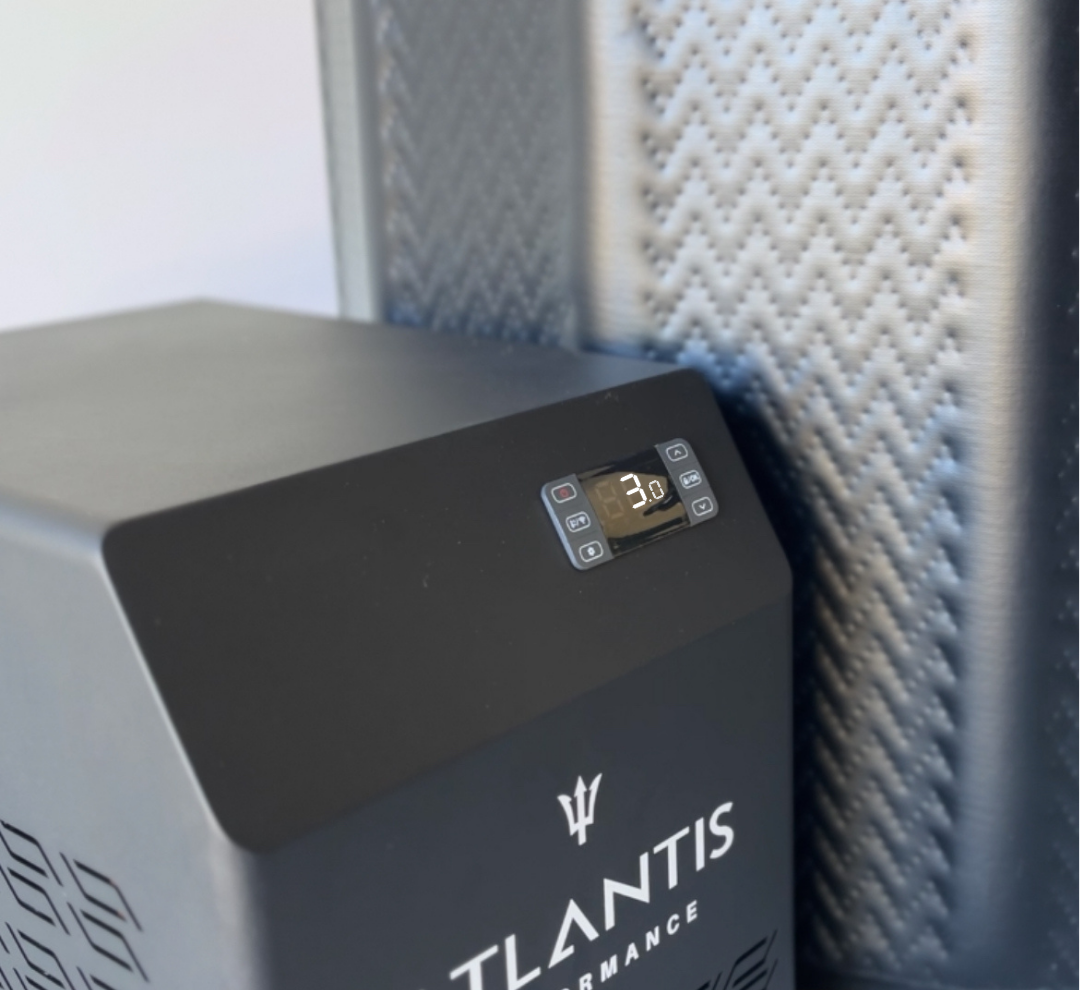How to use the cold with purpose
Your Cold Exposure Protocol
Cold exposure is a powerful tool, but how you use it matters. Below is a detailed guide outlining specific protocols for different goals, based on research, coaching practice, and lived experience. Each protocol includes optimal timing, duration, temperature, and frequency to help you get the most out of your experience.
Please Note: For cold exposure to trigger the most significant physiological adaptations, colder temps are more effective but going below 4°C doesn’t add additional benefit.
As a general guide:
Resilience Training/ Recovery: 7-10°C
Mental Clarity/ Focus: 10-15°C
Sleep Support/ Stress Relief: 12-18°C
Cold Exposure Protocols Based On Goal:
|
Goal |
Timing |
Duration |
Water Temp |
Frequency |
Scientific Basis / Notes |
Cautions / Exceptions |
|---|---|---|---|---|---|---|
|
General Recovery |
Post-training | 3-6+ min | 7-10°C (50-59°F) | 2-4x/week | Reduces inflammation and speeds up muscle repair (Vaile et al., 2008) | Not immediately after strength training for hypertrophy goals |
|
Muscle Growth |
Avoid immediately post-training | N/A | N/A | 0-1x/week | Cold post-training may blunt anabolic signaling (Roberts et al., 2015) | Wait 6-8 hours post-session or use on rest days |
|
Fat Loss |
Morning or fasted state | 2-5 min | 10-14°C (50-57°F) | 3-5x/week | Activates brown fat and boosts metabolic rate (Saito et al., 2009) | Avoid if overly fatigued or fasting long-term |
|
Sleep Support |
1-2 hours before bed | 3-5 min | 15-18°C (59-64°F) | 2-4x/week | Helps reduce cortisol and lower core body temp (Buchanan et al., 2020) | Avoid high intensity exposure right before sleep |
|
Mental Resilience |
Morning or controlled challenge | 2-3 min | 7-10°C (41-50°F) | Daily or 4-6x/week | Trains parasympathetic control under stress (Huberman, 2022) | Respect adaptation; start slow |
|
Mood Elevation |
Morning or slump periods | 1-3 min | 10-14°C (50-57°F) | 3-7x/week | Cold immersion can elevate dopamine for hours (Huberman Lab) | Avoid if anxious or overstimulated |
|
Inflammation Management |
Anytime | 6-8 min | 10-13°C (50-55°F) | 3x/week | Shown to lower systemic inflammation markers | Discuss with doctor if autoimmune disorder present |
|
High-Output Sport Recovery |
Post-competition or hard session | 15+ min | 5-8°C (44-50°F) | As needed post-event | Supports rapid neuromuscular reset | Not for daily use in tapering phases |
|
Hormonal Balance |
Morning or mid-day | 2-4 min | 10-15°C (50-59°F) | 3x/week | Supports a hormonal environment favorable to testosterone and lower cortisol | Not a replacement for medical care |
|
Personal Challenge |
Varies | 1-5 min | Progressively colder | Daily or progressive | Builds discipline, willpower, and cold tolerance | Don’t rush adaptation or ego test |
|
Post-Sauna Contrast |
Immediately post-sauna | 1-3 min | 8-15°C (46-59°F) | 2-3x/week | Improves vascular elasticity and circulation (Westerlund et al., 2009) | Not recommended for those with heart conditions |
|
Immunity Support |
Morning | 2-3 min | 10-14°C (50-57°F) | 3-4x/week | Cold exposure boosts white cell activity (Shevchuk, 2008) | Avoid if actively sick |
|
Mental Clarity & Focus |
Morning or before deep work | 1-2 min | 10-15°C (50-59°F) | 5x/week | Increases alertness without caffeine | Not a substitute for sleep or nutrition |
|
Jet Lag |
After long travel or upon waking | 3-5 min | 10-14°C (50-57°F) | As needed | Helps regulate circadian rhythm & boost energy | Not ideal if sleep deprived. Have a sleep, then get in the ice. |
|
Stress Relief |
End of day | 2-4 min | 12-16°C (53-60°F) | 2-3x/week | Activates parasympathetic state and reduces anxiety | Avoid prolonged exposure before bed |
Disclaimer: This guide is not medical advice. Always listen to your body and adapt your protocol based on how you respond. If you have pre-existing conditions, please consult with a healthcare professional.
Next Steps:
You’ve seen how cold exposure can be adapted to nearly any goal - from recovery to resilience, fat loss to focus. Now it’s time to put that knowledge into action. Whether you’re just starting or ready to upgrade your routine, the right setup makes it easy to stay consistent.

